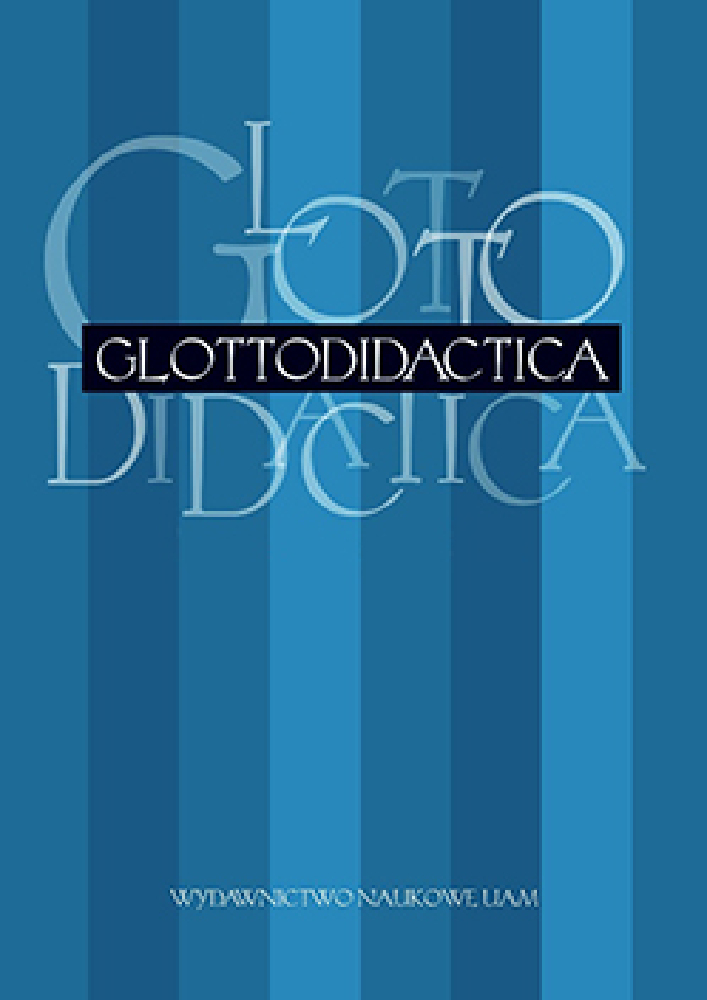Abstract
This study uses the Interactive Learning Model theory to explore the nature of self-awareness within each of three L2 learners. Using the Learning Connections Inventory (LCI), a validated and reliable learning instrument, each participant identified their combination of learning patterns. The subjects then recalled specific L2 learning experiences, relating them in first person narratives. Next, each subject composed anecdotes and reflections based on their narratives. They also participated in one-on-one interviews in which they described their learning experiences during basic L2 learning activities: vocabulary, grammar, writing, conversation, and passive listening during movies, live theatre, spectator sports, and television. Our analysis of the LCI outcomes and selfreported learning experiences demonstrated that the self-awareness gained from understanding their combination of learning patterns and expanded by the self-reflection activities, increased the participants’ ability to articulate the nature of their self-awareness and to identify evidence of their growth in self-awareness during L2 learning.
References
Auchère, N. (2021). Personal interview, February 3, 2021. Orléans.
Borkowski, J.G. / Carr, M. / Rellinger, E. / Pressley, M. (1990). Self-regulated cognition: Interdependence of metacognition, attributions, and self-esteem. In: B.F. Jones / L. Idol (eds.), Dimensions of thinking and cognitive instruction (pp. 53–92). Hillsdale, NJ: Lawrence Erlbaum Associates, Inc.
Camilleri, A. (2003). Learner autonomy in modern language learning: Find your bearing and pick your way. Presented at the LML Summer Institute. Swedesboro, NJ.
Flavell, J. (1979). Metacognition and cognitive monitoring. A new area of psychological inquiry. American Psychologist, 34, 906–911.
Hennessey, M.G. (1999). Probing the dimensions of metacognition: Implications for conceptual changes in teaching and learning. Paper presented at the Annual Meeting of the National Association for Research in Science Teaching (NARST). Boston, MA.
Johnston, C. (1994). The interactive learning model. Paper presented at the meeting of the British Education Research Association. Oxford University, Queen Anne’s College, Oxford.
Johnston, C. / Dainton, G. (1997). The learning combination inventory. Thousand Oaks, CA: Corwin.
Johnson, M. (2016). Elements of second language learning. https://www.youtube.com/watch?v=CMdseB-EB8Y [access: 15.09.2021].
Klein, G.B. (2007). SPICES GUIDELINES. A training methodology for intercultural communication in institutional settings. Perugia: Key & Key Communications.
Klein, G.B. (2021). DREAMM – Develop and Realise Empowering Actions for Mentoring Migrants. New ways of bringing together newly arrived Third-Country Nationals and local communities.957882 – DREAMM – AMIF-2019-AG-CALL.
Klein, G.B. / Calleja, C. / Gelfgren, V. / Ravenda, A. (2016). RADAR (Regulating AntiDiscrimination and AntiRacism) Trainers’ Manual. Anti-hate communication tools in an intercultural perspective. Deruta / Perugia: Key & Key Communications.
Klein, G.B. / Szczepaniak-Kozak, A. (2014). L2 textbook evaluation in view of L2 adult learners’ real communication needs: A study of bureaucratic-institutional communication skills. In: E. Wąsikiewicz-Firlej / H.A. Lankiewicz / A. Szczepaniak-Kozak (eds.), Culture and creativity in discourse studies and foreign language pedagogy (pp. 93–115). Piła: Wydawnictwo PWSZ im. S. Staszica w Pile.
Krashen, S.D. (1982). Principles and practice in second language acquisition. Oxford: Pergamon Press.
McSweeney, T. (2005). Merging cognitive and instructional theories: Implementation of an advanced learning system in secondary mathematics. New York: Hofstra University.
National Research Council (NRC) (1999). How people learn: Bridging research and practice. M.S. Donovan / J.D. Bransford, / J.W. Pellegrino (eds.). Washington, DC: The National Academies Press.
Newell, J. /Dahm, K. / Harvey, R. (2004). Developing metacognitive engineering teams. Chemical Engineering Education, Fall 38 (4), 316–320.
Paris, S.G. / Winograd, P. (1990). How metacognition can promote academic learning and instruction. In: B.F. Jones / L. Idol (eds.), Dimensions of thinking and cognitive instruction (pp. 15–51). Hillsdale, NJ: Erlbaum.
Pattoia, M. (2009). Il Let Me Learn Process® come strumento integrabile in un sistema di eLearning adattivo. VEGA – Periodico elettronico di cultura, didattica e formazione, V (3).
Scanlon, E. (2004). Reconsidering science learning. Hove: Psychology Press.
Schütz, R.E. (2019). Stephen Krashen’s Theory of second language acquisition. English Made in Brazil. https://www.sk.com.br/sk-krash-english.html [access: 15.09.2021].
Snow, R.E. / Corno, L. / Jackson, D. (1996). Individual differences in affective and conative functions. In: D.C. Berliner / R.C. Calfee (eds.), Handbook of educational psychology (pp. 243–310). New York, NY: Macmillan.
Ward, N. (2009). The influence of a metacognitive learning system on the writing achievement of elementary school students. South Orange, NJ: Seton Hall University.
License
 This work is licensed under a Creative Commons Attribution-NoDerivatives 4.0 International License.
This work is licensed under a Creative Commons Attribution-NoDerivatives 4.0 International License.
Authors
Authors of texts accepted for publication in Glottodidactica are required to complete, sign and return to the Editorial team’s office the Agreement for granting a royalty-free license to works with a commitment to grant a CC sub-license.
Under the agreement, the authors of the texts published in Glottodidactica grant Adam Mickiewicz University in Poznań a non-exclusive, royalty-free license and authorize the use of Attribution-NoDerivatives 4.0 International (CC BY-ND 4.0) Creative Commons sub-license.
The authors retain the right to the free disposal of the work.
Users
Interested Internet users are entitled to use works that have been published in Glottodidactica since 2016, under the following conditions:
▪ attribution – obligation to provide, together with the distributed work, information about the authorship, title, source (link to the original work, DOI) and the license itself.
▪ no derivatives – the work must be preserved in its original form. Without the author's consent, it is not possible to distribute the modified work in the form of translations, publications, etc.
Copyrights are reserved for all texts published before 2016.
Miscellaneous
Adam Mickiewicz University in Poznań retains the property right as a whole (layout, graphic form, title, cover design, logo etc.).
Privacy statement
The names and email addresses published on this journal site will be used exclusively for the purposes declared by this journal and cannot be used for any other purpose or by any other party.





